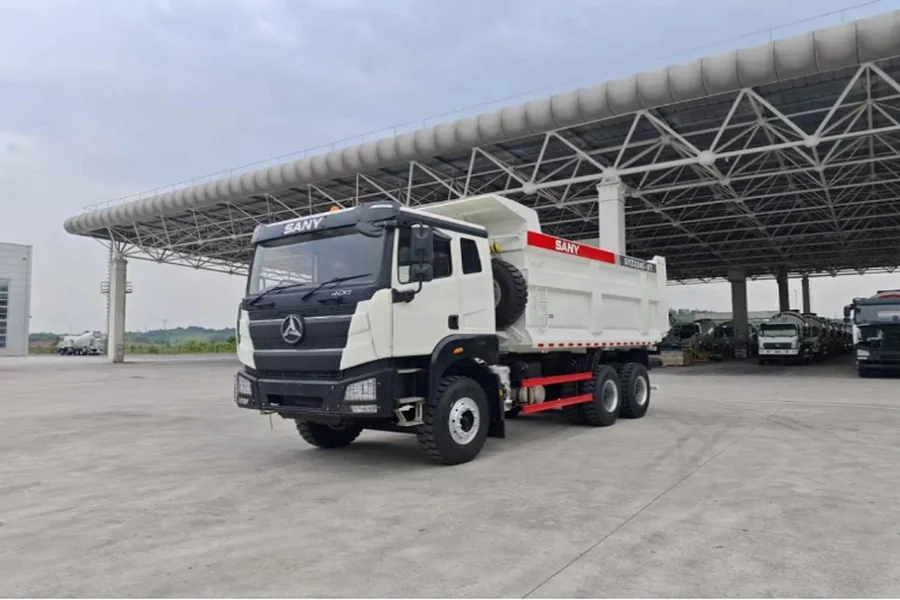Dump trucks are essential workhorses in various industries, from construction to mining. Their efficiency and reliability directly impact project timelines and overall costs. Regular maintenance is crucial to ensure dump trucks stay in optimal condition, maximizing productivity and safety. This guide outlines the essential maintenance tasks that help keep these vehicles running smoothly. From daily visual inspections and fluid checks to comprehensive major servicing and long-term care, this article provides insights into maintaining your dump truck. Understanding these tasks not only increases the truck’s lifespan but also reduces unexpected downtime, saving you resources and time in the long run. Explore these key maintenance tasks and keep your dump truck performing at its best.
Daily and Pre‑Start Checks
Daily maintenance forms the foundation of a reliable dump truck operation.
Visual Inspection and Fluid Levels
Start the daily routine with a visual inspection of the dump truck. Look for leaks, wear, and potential damage to the tires, lights, and mirrors. Ensure that windshields are clean, wipers work, and all signals are operational. Pay close attention to fluid levels, as they are critical for optimal vehicle performance. Check the engine oil, coolant, brake fluid, and hydraulic fluid levels. Proper levels ensure smooth engine operation and prevent unnecessary wear and overheating. By wearing appropriate safety gear and using proper tools, the operator conducts these checks efficiently, ensuring that any discrepancies are addressed before they escalate into costly repairs.
Safe Operation Checks
Safety checks are essential to prevent accidents and ensure operational reliability. Begin with the brakes, confirming that both the service and parking brakes engage smoothly and hold securely. Test the steering for responsiveness and unusual vibrations. Evaluate the horn, lights, and emergency exits for functionality. Verify that load securement devices are ready for use and not damaged. Finally, conduct a test drive to ascertain that the truck maneuvers easily and brakes effectively. Drivers perform these checks with focus and attention to detail, ensuring safety for themselves and those around them on the job site.
Weekly and Monthly Maintenance
Weekly and monthly maintenance tasks delve deeper into the functionality of a dump truck.
Lubrication and Filter Changes
Regular lubrication prevents friction, ensuring that the dump truck’s components work smoothly. Grease the chassis, steering components, and suspension systems. Focus on all moving parts, as they require consistent lubrication to prevent wear and tear. Additionally, replace oil, air, and fuel filters regularly to maintain clean engine operation. Cleaner engines translate into better fuel efficiency and reduced emissions, benefiting both vehicle performance and the environment. Operators should schedule these tasks weekly or monthly, depending on the truck’s usage, and always use manufacturer-recommended lubricants and filters.
Under‑Carriage and Axles
Inspect the undercarriage for signs of rust, damage, and buildup of dirt or debris. These elements can lead to structural issues if left unchecked. Clean and inspect the axles and chassis for signs of wear or damage, particularly after operating in harsh terrain or weather conditions. Ensure that all components are securely attached and that no unusual vibrations occur during operation. Fleet managers should incorporate undercarriage inspections into weekly maintenance routines, using these checks to detect and address issues early.
Brake System and Tyres
Maintaining brakes and tires is crucial for safety and performance. Inspect brake pads, rotors, and lines for wear or leakage and replace them if necessary. Check the tire pressure and tread depth, adjusting and replacing as needed to ensure optimal grip and performance. Misaligned or worn tires can affect fuel efficiency and vehicle safety. By keeping brakes and tires in excellent condition, operators ensure that the dump truck stops effectively and navigates terrain safely. These checks, performed as part of a monthly routine, identify wear early and maintain vehicle reliability.

Scheduled Major Servicing and Long‑Term Care
Beyond daily and weekly maintenance, dump trucks require scheduled major servicing to remain fully operational.
Engine and Transmission Overhaul
Regularly scheduled engine and transmission overhauls restore performance and prolong the lifespan of the dump truck. This involves dismantling, cleaning, and refurbishing critical components to ensure smooth operation. Replace worn parts and ensure the engine timing and compression are optimal. Additionally, the transmission system must be examined for signs of wear and calibrated correctly. These overhauls significantly contribute to maintaining the truck’s power and efficiency. Skilled technicians should conduct these procedures to ensure precision and quality.
Structural Integrity and Body Wear
Assess the structural integrity of the dump truck regularly. This includes inspecting the body for signs of fatigue, corrosion, or cracking, which can compromise safety and durability. Regular welding or reinforcement may be necessary to maintain the truck’s structural soundness. Evaluate loading mechanisms and hinges for proper operation and lubrication. By focusing on body conditions, operators improve the truck’s efficiency and extend its working life. Regular inspections allow timely interventions, avoiding more costly repairs later.
Service Network and Parts Availability
Establish a reliable service network to facilitate smoother maintenance workflows. Partner with reputable suppliers for parts availability, ensuring that replacements are of high quality and fit seamlessly. Effective logistics planning improves uptime by reducing delays in service procedures. This network supports long-term operational efficiency by ensuring that trucks return to duty quickly after scheduled maintenance. Collaboration between fleet managers and suppliers ensures the availability and quality of necessary parts and services.
Conclusion
Regular maintenance is integral to the efficiency and longevity of dump trucks. By incorporating these essential tasks into daily, weekly, monthly, and long-term maintenance routines, operators ensure that their vehicles remain in top condition. Preventive maintenance not only safeguards safety and performance but also reduces unexpected downtime, ultimately increasing the profitability of operations. With dedicated attention from trained operators and technicians, dump trucks can serve reliably for years, adapting to the demands of heavy industries and minimizing operational costs. This comprehensive guide provides a roadmap for maintaining your dump truck fleet, ensuring it stands the test of time.





